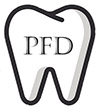What are Wisdom Teeth?
Wisdom teeth (third molars) are the most posterior teeth in human dentition. They are located at the very far back of the mouth, one in each quadrant. Because of their location, wisdom teeth are difficult to keep clean and typically accumulate excessive amounts of plaque, tartar and other debris leading to premature decay and discomfort.
Third molars are usually developed between the ages of 17 and 25. In many cases, they remain impacted and never erupt. If the patient does not experience pain, no treatment is necessary. If the teeth partially or fully erupt and cause consistent ache, an extraction is a preferred course of treatment. Depending on the patient’s level of discomfort and oral hygiene, preventive extractions may be recommended to avert any health complications in the future. The depth of impaction and the available space for eruption will allow the clinician to determine proper treatment.
Removal of Wisdom Teeth
Patients who exhibit signs of poor oral hygiene may experience repeated infections of the gingiva surrounding the wisdom teeth. The dentist may then suggest the removal of excess tissue around the affected tooth along with improved oral care at home and antiseptic rinses. If the condition persists, the patient may be scheduled for extraction to alleviate the possibility of decay formation and lingering discomfort.
As any oral surgery is an invasive procedure, the patient’s medical history, present health status, medications and oral habits are taken into consideration when making the diagnosis and creating a treatment plan. The process begins with a visual examination of the mouth along with a panoramic radiograph (Panorex or Panellipse) to verify the position of the wisdom teeth to be removed. The patient’s comfort and anxiety levels are determined allowing the dentist to choose proper anesthetic approach. Most oral surgeries can be completed with local anesthesia only without the need for additional methods of desensitizing the area.
Postoperative Care
Postoperative care after the extraction of the wisdom teeth may include administration of antibiotics to prevent infections, pain medication and extended period of rest. Swelling is a normal side effect of surgery and is to be expected to last for several days. The patient is instructed to apply cold compresses for the first 24 hours following the surgery. It is imperative to follow the doctor’s orders to prevent complications such as dry socket, a painful condition which leads to radiating pain to other areas of the mouth and neck region. Medicated dressing may be recommended to remedy the condition.

